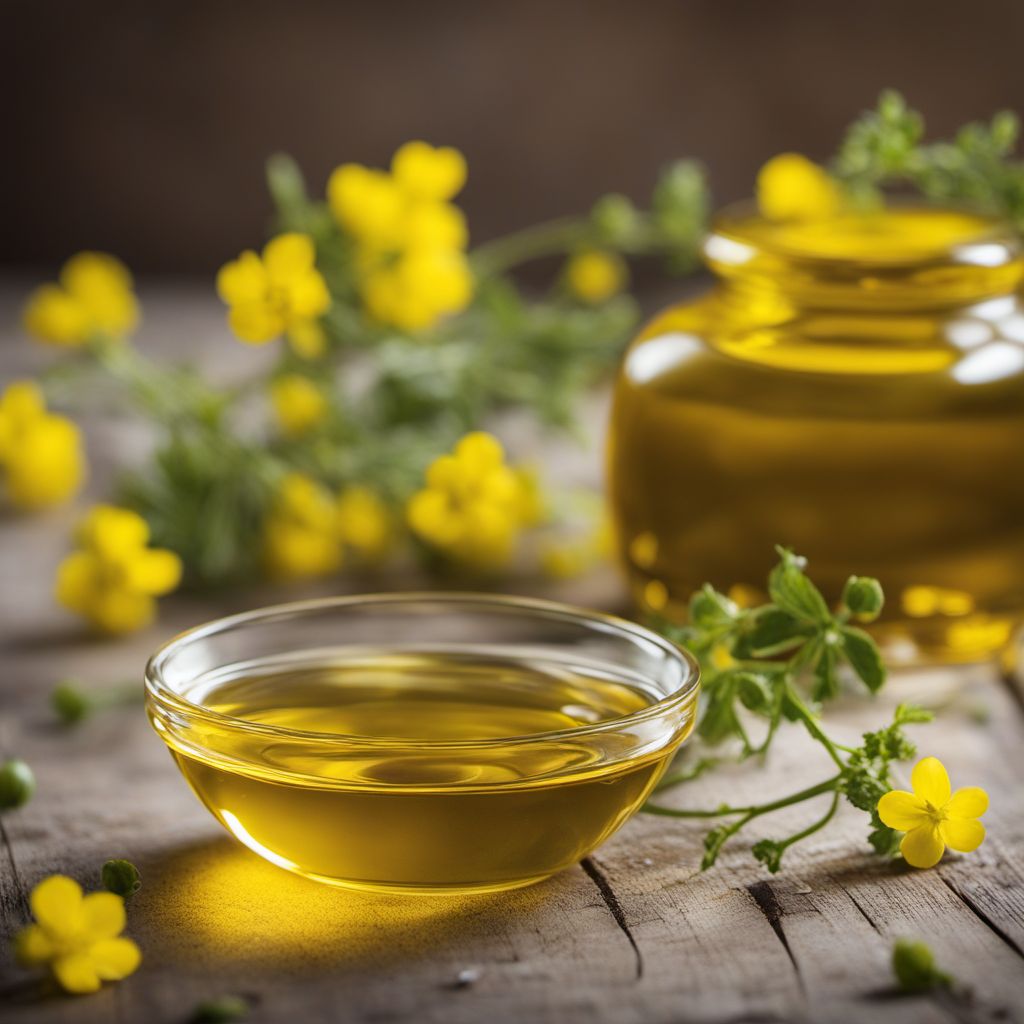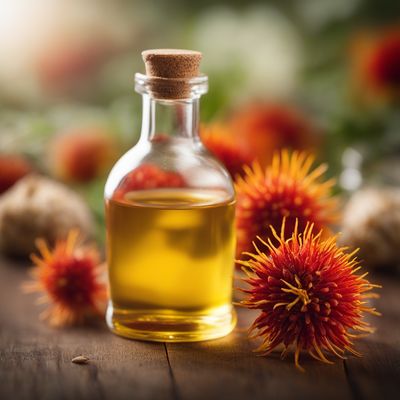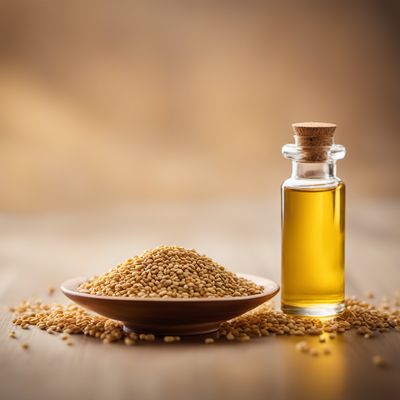
Ingredient
Rape seed oil, edible
The Golden Elixir: Edible Rapeseed Oil
Rapeseed oil is a pale yellow oil extracted from the seeds of the rapeseed plant. It has a mild, neutral taste and a smooth texture, making it suitable for various culinary applications. Its light color and high smoke point make it ideal for frying, sautéing, and baking. Additionally, rapeseed oil is rich in monounsaturated fats and contains omega-3 fatty acids, making it a heart-healthy choice.
Origins and history
Rapeseed oil has been cultivated for centuries and has its origins in Asia and Europe. It has been used in traditional Chinese and Indian cuisines for centuries. In the 1970s, the development of low-erucic acid and low-glucosinolate varieties made rapeseed oil more suitable for consumption, leading to its widespread popularity as canola oil. Today, it is one of the most widely produced and consumed vegetable oils worldwide.
Nutritional information
Rapeseed oil is a good source of monounsaturated fats and omega-3 fatty acids, which promote heart health and reduce inflammation. It is also low in saturated fat and cholesterol-free. Additionally, it contains vitamin E, an antioxidant that helps protect cells from damage.
Allergens
Rapeseed oil is generally considered safe for consumption and does not commonly cause allergies. However, individuals with a known allergy to rapeseed or mustard should avoid consuming rapeseed oil.
How to select
When selecting rapeseed oil, look for a clear, golden-colored oil with a mild aroma. Check the label to ensure it is labeled as edible or suitable for cooking. Opt for cold-pressed or expeller-pressed varieties for a higher quality oil with more nutrients. Additionally, choose organic or non-GMO options if available.
Storage recommendations
To maintain the freshness and quality of rapeseed oil, store it in a cool, dark place away from direct sunlight and heat sources. Ensure the bottle is tightly sealed to prevent oxidation. Refrigeration is not necessary but can extend the shelf life of the oil. Use within the recommended expiration date for the best flavor and nutritional value.
How to produce
Rapeseed plants can be grown in temperate climates and are relatively easy to cultivate. They require well-drained soil and full sun exposure. Sow the seeds directly in the garden or in containers, keeping the soil consistently moist. Harvest the mature seeds and extract the oil using a mechanical press or by cold-pressing the seeds.
Preparation tips
Rapeseed oil can be used in a variety of cooking methods, including frying, sautéing, baking, and salad dressings. Its mild flavor allows it to enhance the taste of dishes without overpowering other ingredients. Use it as a substitute for other cooking oils in recipes or as a healthier alternative to butter or margarine in baking. It can also be used as a base for homemade mayonnaise or vinaigrettes.
Substitutions
Olive oil, sunflower oil, and soybean oil can be used as substitutes for rapeseed oil in most recipes. However, keep in mind that the flavor and smoke point may vary.
Culinary uses
Rapeseed oil is commonly used in salad dressings, marinades, stir-fries, and baked goods. It is also a popular choice for deep-frying due to its high smoke point. In many cuisines, it is a staple cooking oil for its versatility and health benefits.
Availability
Rapeseed oil is widely available in grocery stores, supermarkets, and specialty food stores worldwide. It is commonly cultivated in countries such as Canada, China, India, and European countries like Germany, France, and the United Kingdom.
More ingredients from this category » Browse all

Sunflower seed oil, edible
Golden Elixir from the Sun

Peanut oil, edible
Liquid Gold: Unveiling the Versatility of Peanut Oil

Cotton seed oil, edible
The Versatile Cotton Seed Oil

Pumpkin seed oil
Liquid Gold: Unveiling the Richness of Pumpkin Seed Oil

Almond oil
Liquid Gold

Maize oil, edible
Golden Elixir: Unveiling the Secrets of Maize Oil

Walnut oil
Liquid Gold: Unveiling the Richness of Walnut Oil

Linseed oil
The Golden Elixir: Linseed Oil

Hemp seed oil
Nature's Elixir

Grape seed oil
The Versatile Elixir

Safflower seed oil, edible
The Golden Elixir: Unveiling the Secrets of Safflower Seed Oil

Sesame seed oil, edible
The Golden Elixir: Edible Sesame Seed Oil
Recipes using Rape seed oil, edible

Satay with a Nordic Twist
Nordic-inspired Satay: A Fusion of Flavors

Cochinita Pibil with a Nordic Twist
Nordic-Inspired Cochinita Pibil: A Fusion of Mexican and New Nordic Flavors

New Nordic Paella
Nordic Twist on Spanish Classic: New Nordic Paella

Tacos al Pastor with a New Nordic Twist
Nordic-Inspired Tacos al Pastor: A Fusion of Flavors